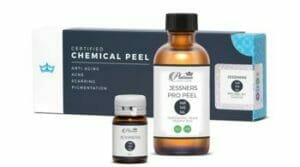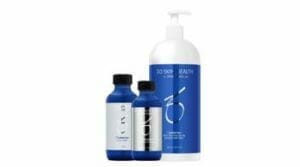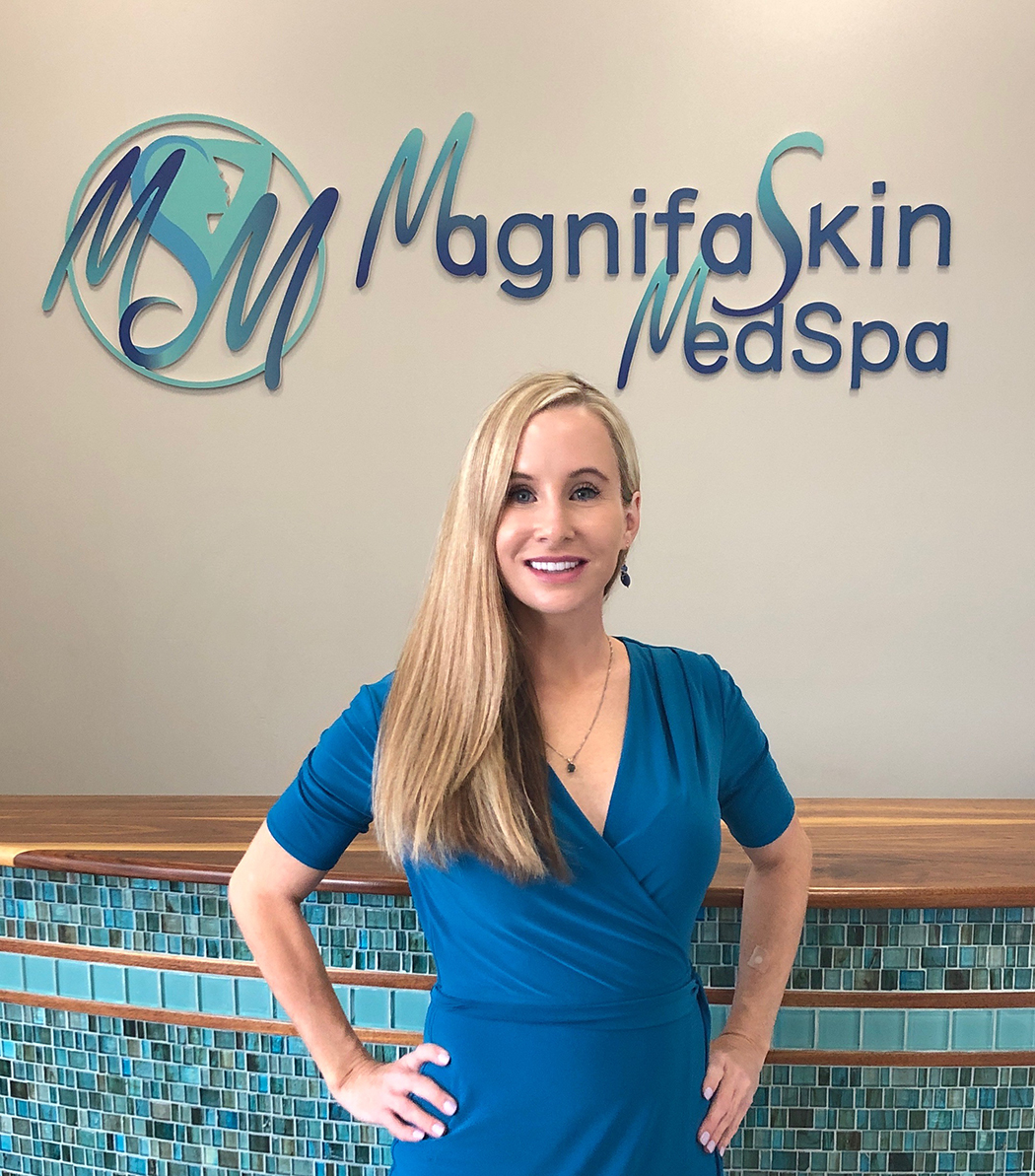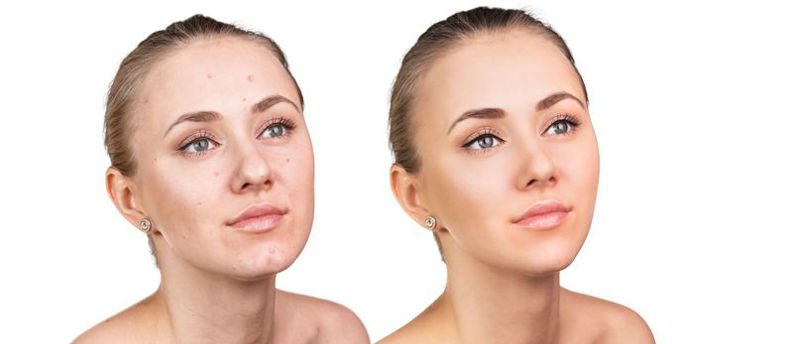
Chemical Peels Part 3 of 3: How Peels Work
Two weeks ago we looked at chemical peels and how they differ from facials. Then, last week in part one of chemical peels we examined what peels can do for your skin that a facial can’t. In this week’s post we’ll explore exactly how chemical peels work as well as the different types of peels.
Light, Medium, or Deep?
Everyone’s skin is different. What works for one person may not be the right treatment for another. Similarly, different skin conditions require varying levels of treatment. To address this, chemical peels use different active ingredients and come in three degrees: light, medium and deep.
Light Peels

Light peels are generally done at home, and only remove the very top layer of skin. These peels can be effective for very young skin and can reduce acne and discolorations.
A light peel only affects the very top layer of skin. Typically done as an at-home treatment, these peels commonly use one of two active ingredients.
Glycolic acid is a type of Alpha Hydroxy Acid (AHA). It comes from sugar cane or beets and is a naturally occurring compound. It is commonly used to treat psoriasis, melasma and non-cancerous skin growths called seborrheic keratosis. It is also found in many skin care products, washes, and cleansers. This is due to the very small size of the molecules, which allows glycolic acid to penetrate the cells more easily. Glycolic acid is known to boost collagen production.
In a peel, glycolic acid breaks down the top layer of skin by dissolving sebum and other substances that bind the cells together. Sebum is an oily substance that helps to keep our skin moisturized. When the glycolic acid breaks it down, the cells dry out and die. The affected layer of skin then peels away, leaving behind healthy new skin.
Another type of light peel is the lactic peel. These have been around for literally thousands of years. Derived naturally from milk products, it is one of the mildest forms of peel available.
Any type of light peel may be effective in reducing the appearance of fine lines, wrinkles, scars, and acne. In addition, the boost in collagen production will tighten and tone the skin, and the increased blood flow as the skin heals will help to restore a youthful glow. However, due to the fact that they only affect the very top layer of skin, these peels are most effective for the young. Teenagers suffering from acne may get very good results with a light peel, however as we age deeper peels are required to reveal the healthy skin underneath and to erase signs of aging. For most of us, this means starting medium depth peels in our 20’s if we want to maintain healthy smooth skin for as long as possible.
Medium Peels
These are the peels most often available at salons. Our Jessner, VI and ZO Peels are good examples of medium peels.
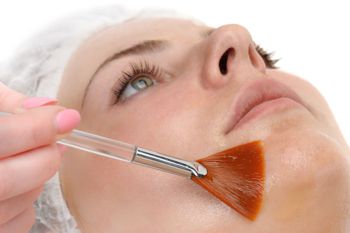
Starting in our mid 20’s we should begin having medium depth peels in order to preserve our skin’s youthful appearance for as long as possible.
Jessner peels contain a combination of lactic acid, salicylic acid and resorcinol. The lactic acid is the actual exfoliant, but the salicylic acid allows for deeper penetration. Resorcinol is a medical grade antiseptic and makes this peel very effective for acne. Like other medium peels the concentrations of these active ingredients are higher than those found in at-home treatments. This is why peels such as this must be applied at a salon by a trained esthetician. Used properly, they will penetrate deeper and produce far more dramatic results than home treatments. But used improperly they can damage your skin.
VI Peels have a different formula. Salicylic acid is still used for deeper penetration, but TCA (Trichloroacetic Acid) is the active exfoliant, rather than AHA. The primary difference is that TCA peels are more effective for darker skin, where a Jessner peel is recommended for lighter skin types. VI Peels also contain Retin-A and Phenol. Retin-A, or tretinoin, is an effective acne treatment and phenol is the antiseptic used in place of Jessner’s resorcinol.
ZO Peels contain the same ingredients as VI, but in different concentrations and the ZO Medical 3 Step Peel includes the application of a retinol cream after the peel is removed, as well as a calming cream to be applied at home during the healing process.
Which One is Best?
The answer is that one is not better than another. Each type of medium peel is formulated to treat different skin types and conditions. Where a Jessner peel may not produce the desired results in one patient, a VI or ZO peel may have a dramatic impact on the appearance of the skin and vice versa. Your esthetician will analyze your skin type and needs and recommend the peel that is best for you.
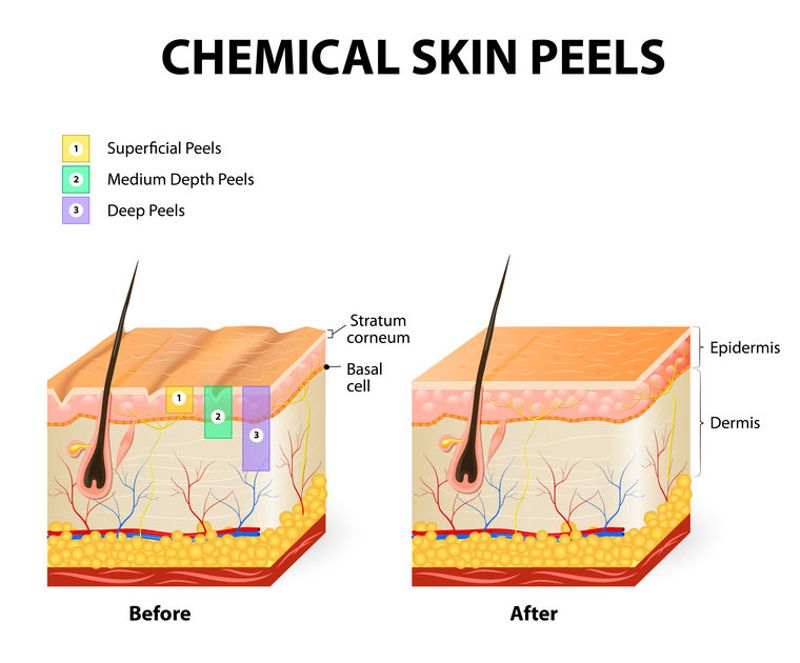
Light, medium and deep chemical peels remove the top layer of skin to different depths. Light peels are generally done at home, medium peels in a salon by a trained esthetician, and deep peels are performed in a hospital or clinic by a doctor or dermatologist.
Deep Peels
While some medium peels do contain light concentrations of phenol, deep peels use it as their primary ingredient. Phenol, also called carbolic acid, is a mild acid derived from petroleum and is more potent as an exfoliant than either AHA or TCA. For this reason, deep peels are usually only done by a physician in a medical facility. While deep peels will produce the most dramatic effects, healing time can be measured in weeks or even months, and there is a much greater risk of scarring and infection. If you are considering a deep peel, you should definitely consult with your physician first to be sure you understand the risks.
At MagnifaSkin, as at most medspas, we only apply medium peels which safely produce dramatic results with healing times measured in days.
Our Peels
We offer peels from VI, Jessner and ZO. Click the images below for more information.
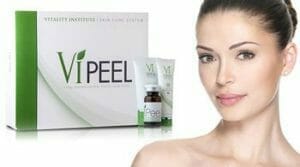
VI Peel is a gentle mid-depth yet powerful medical-grade chemical peel for scarring, fine lines, wrinkles, sun spots and oil balancing.

Be the first to know about new Specials, and blog posts with valuable free information on skin care, beauty and wellness. Sign up below and you'll receive an email notice of new specials as well as new posts. You can unsubscribe at any time.


